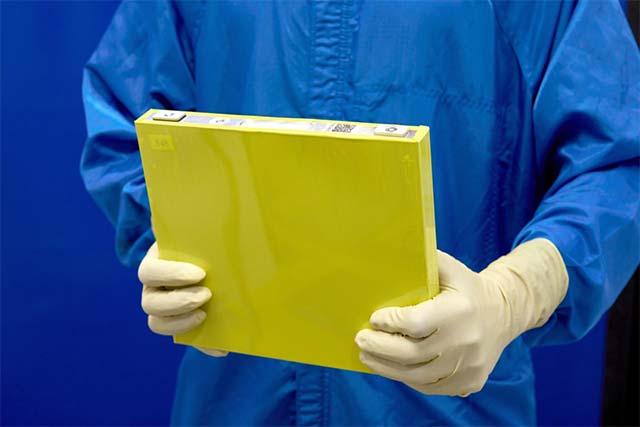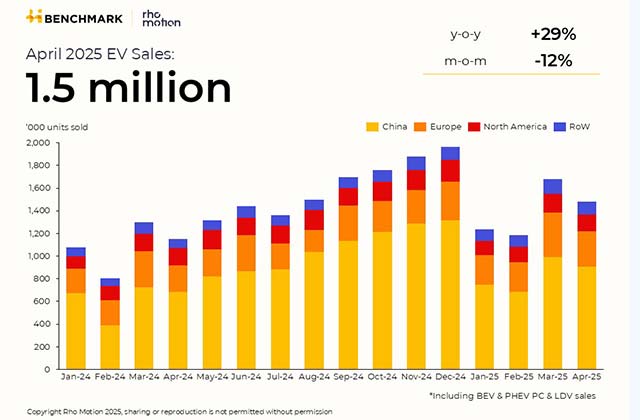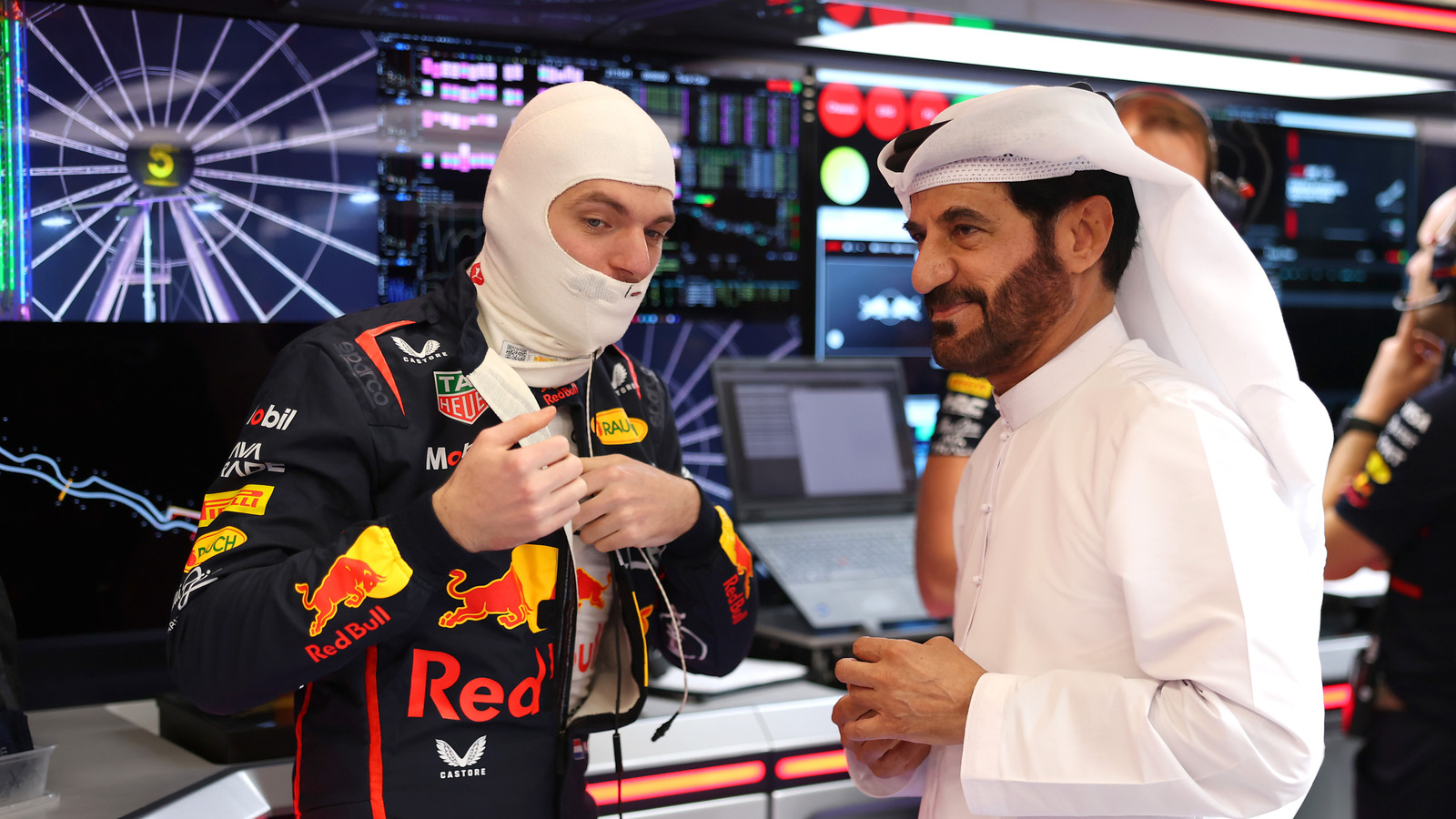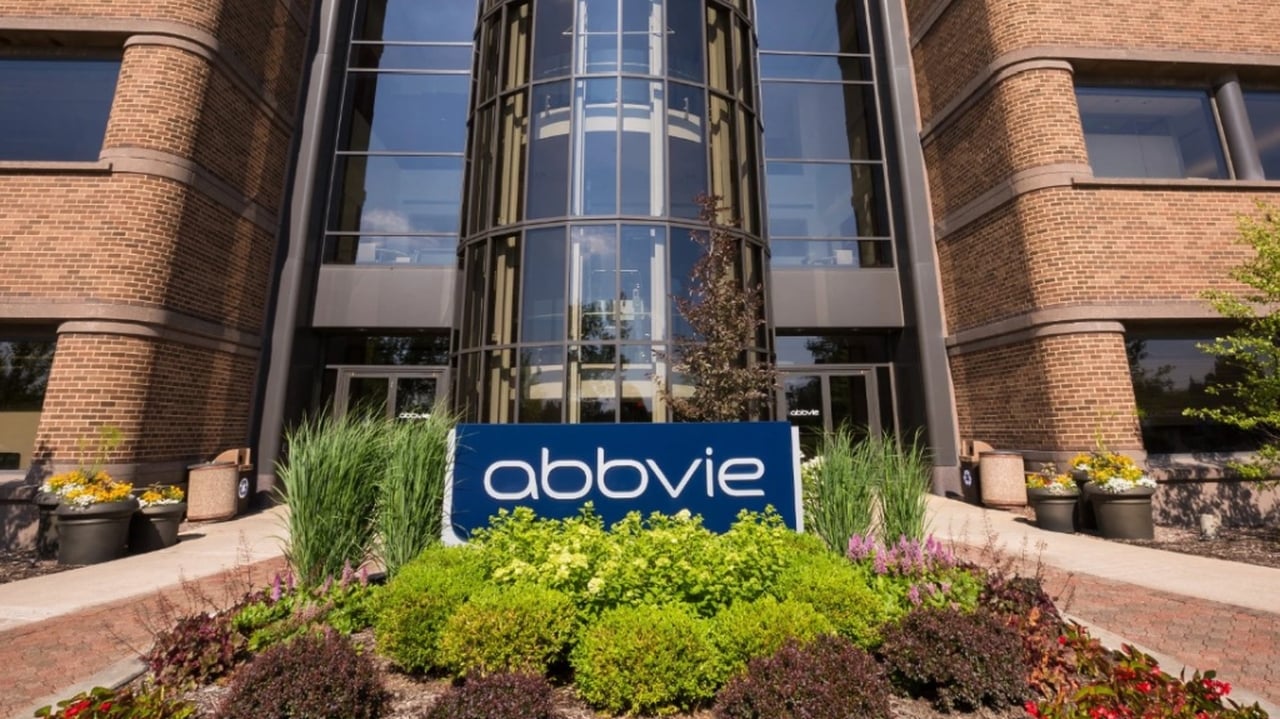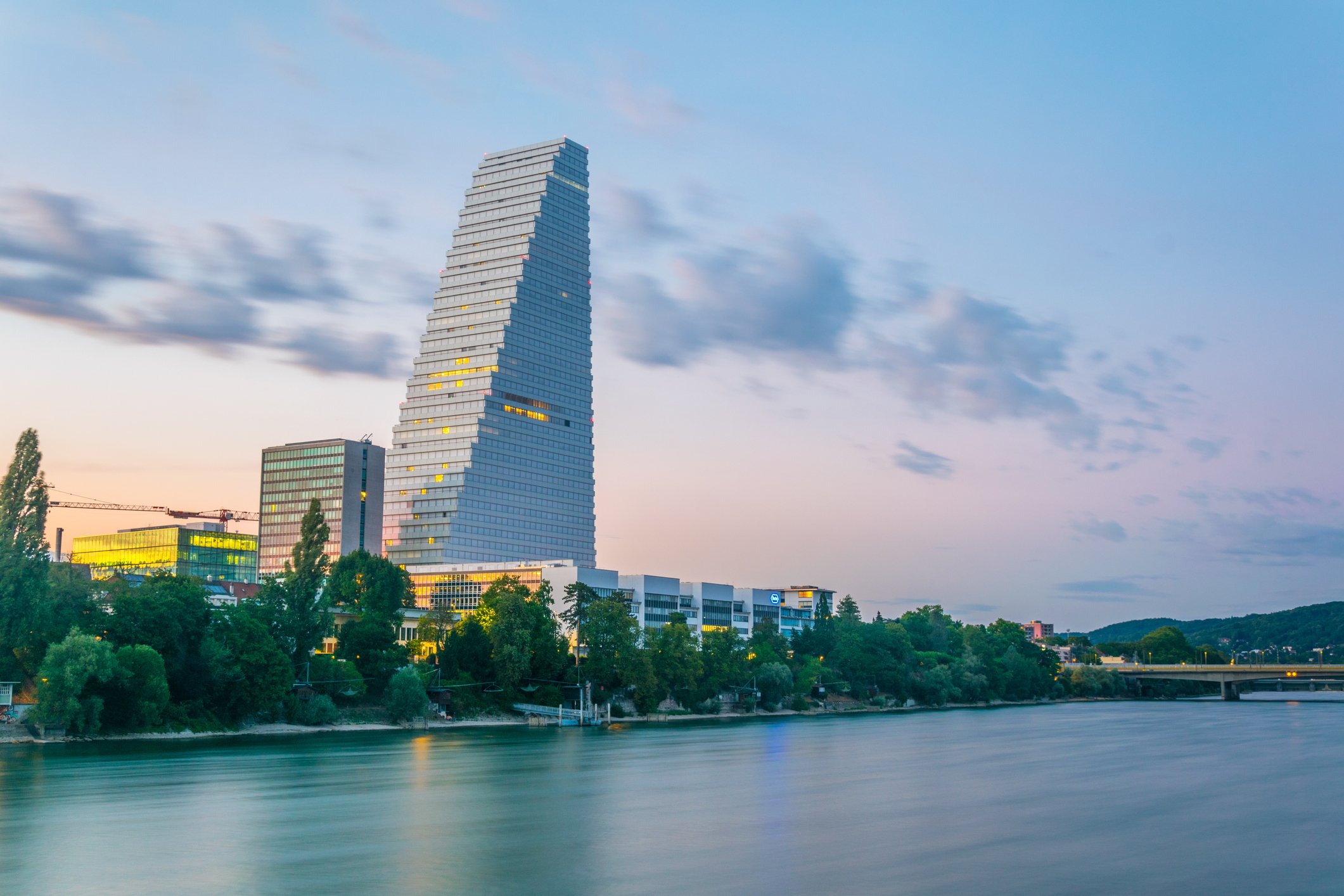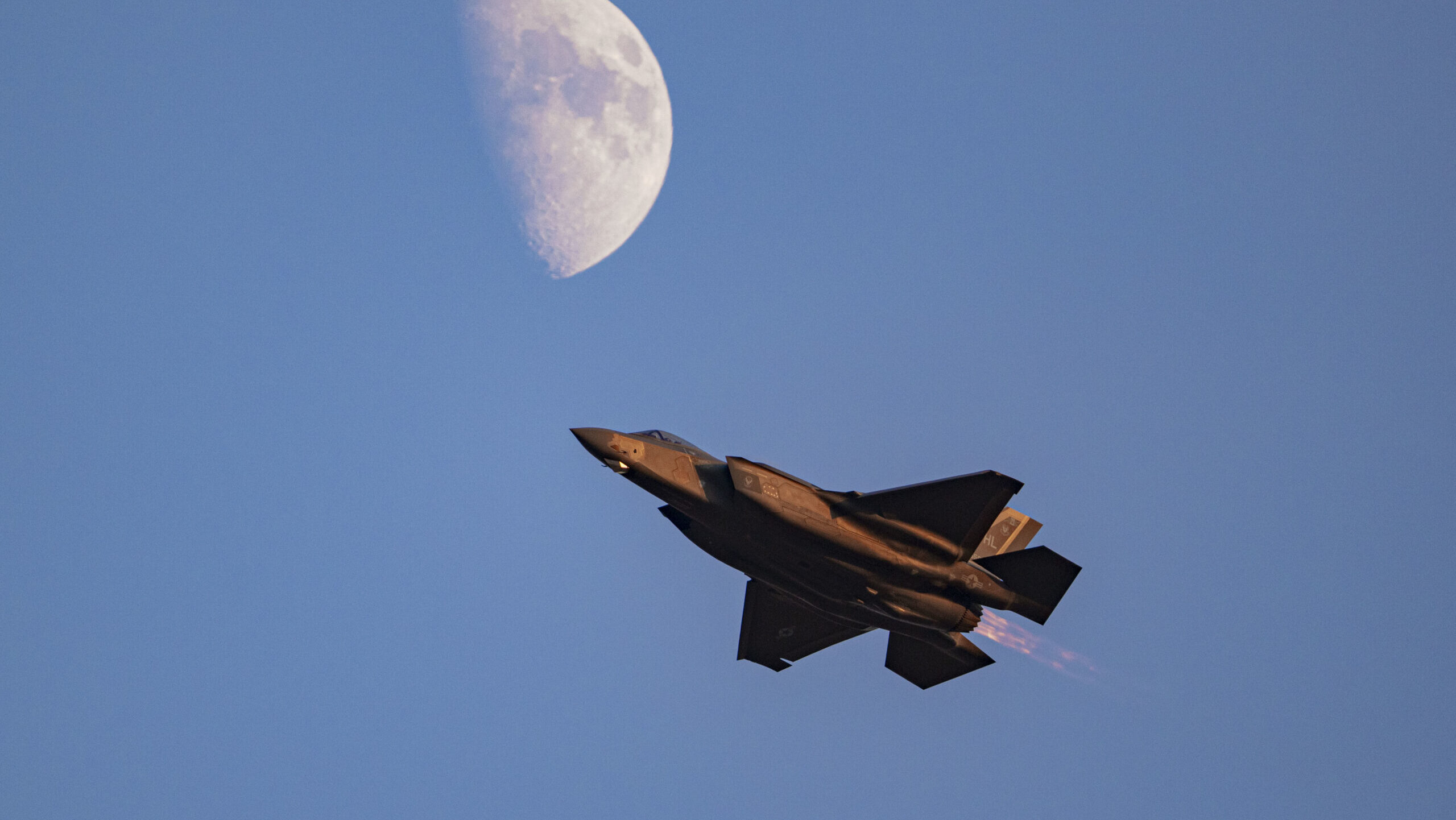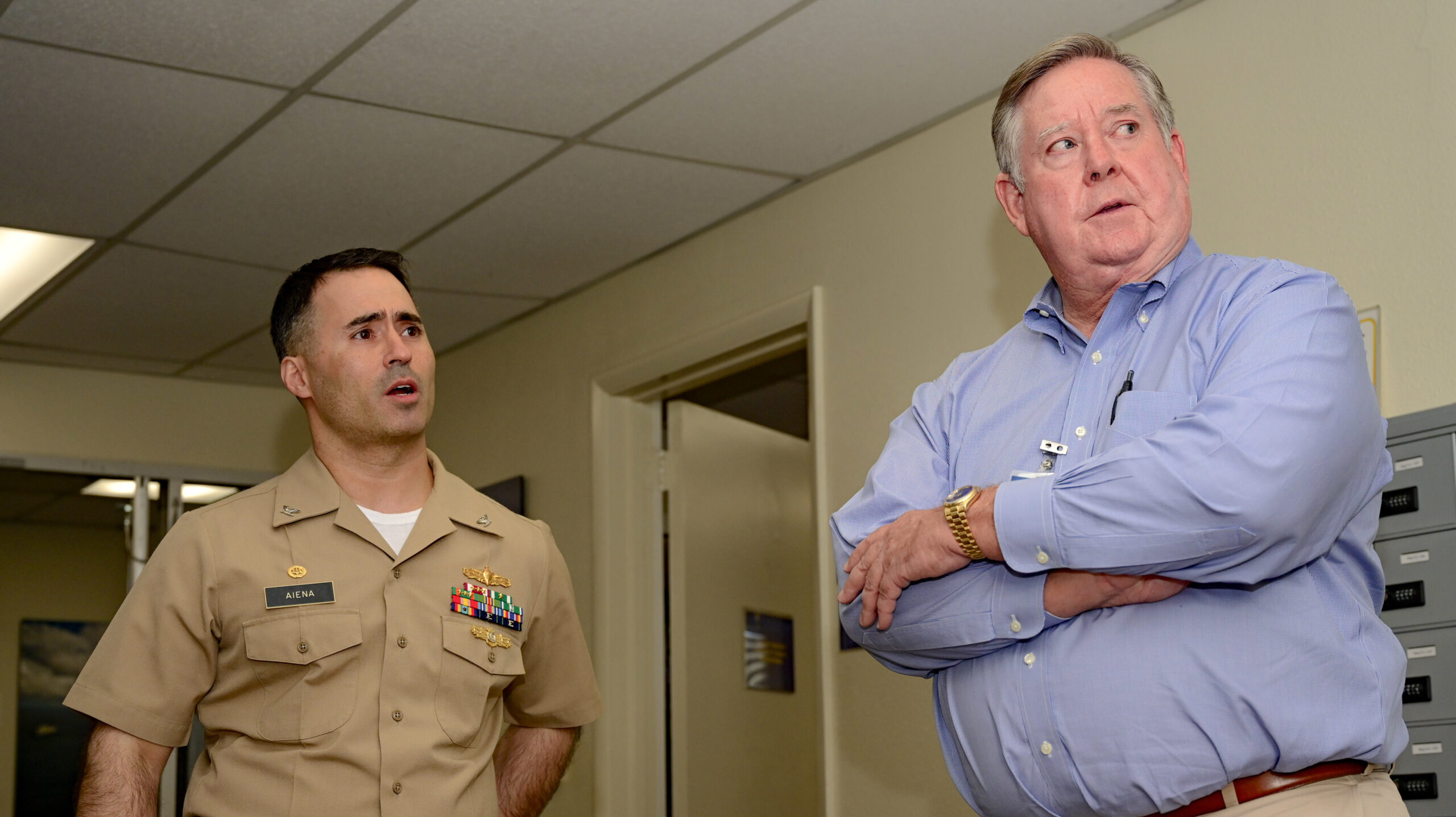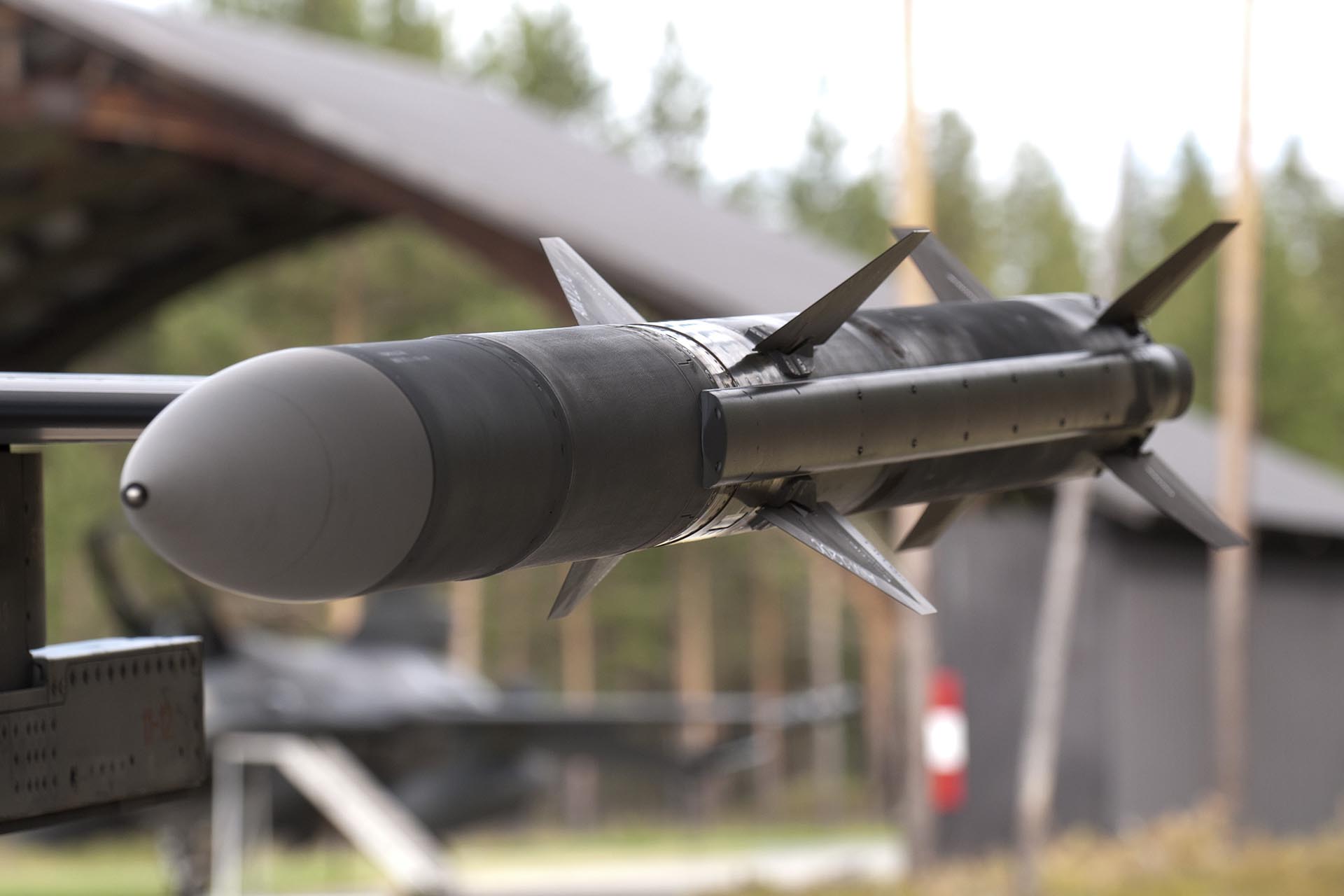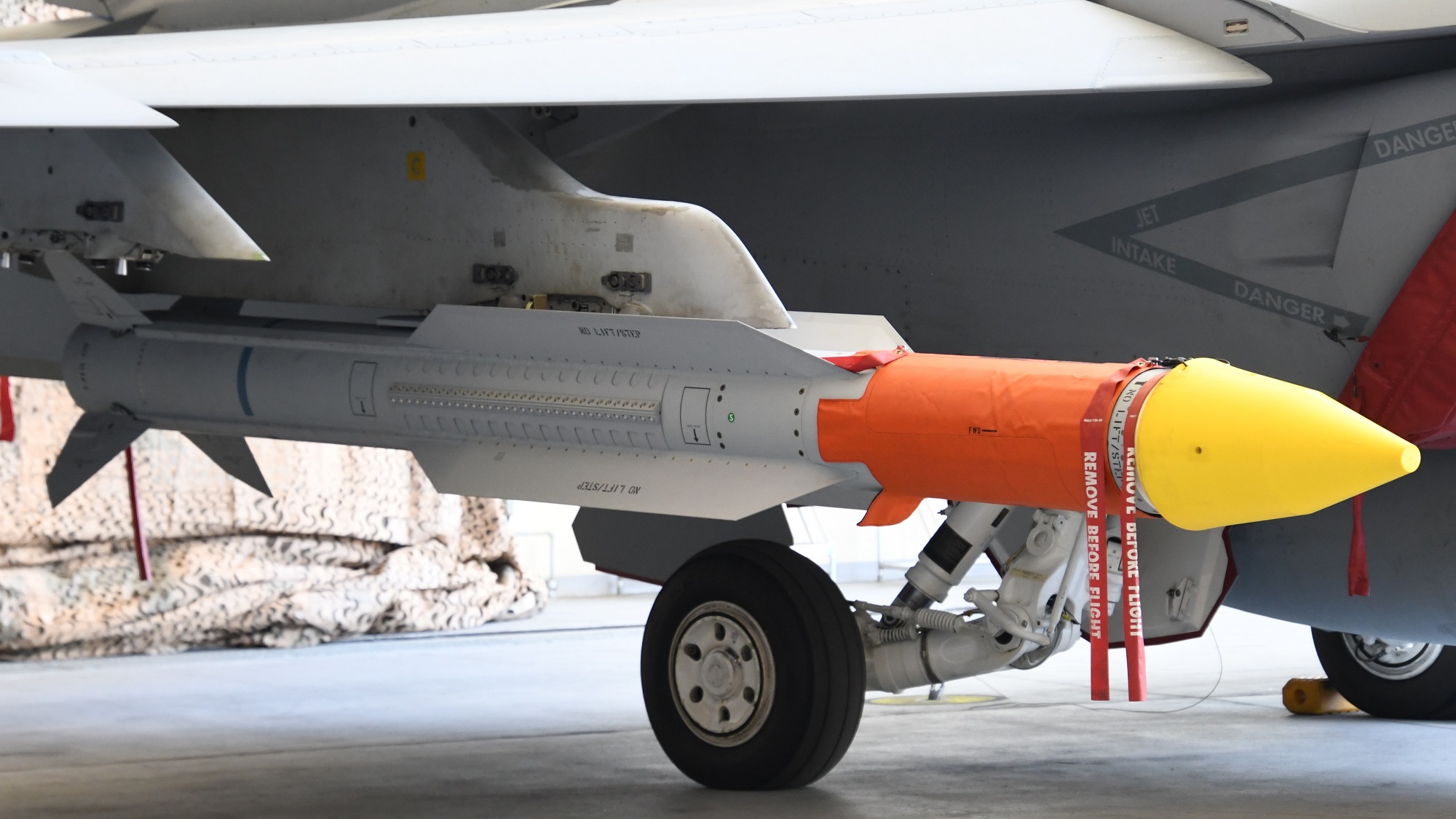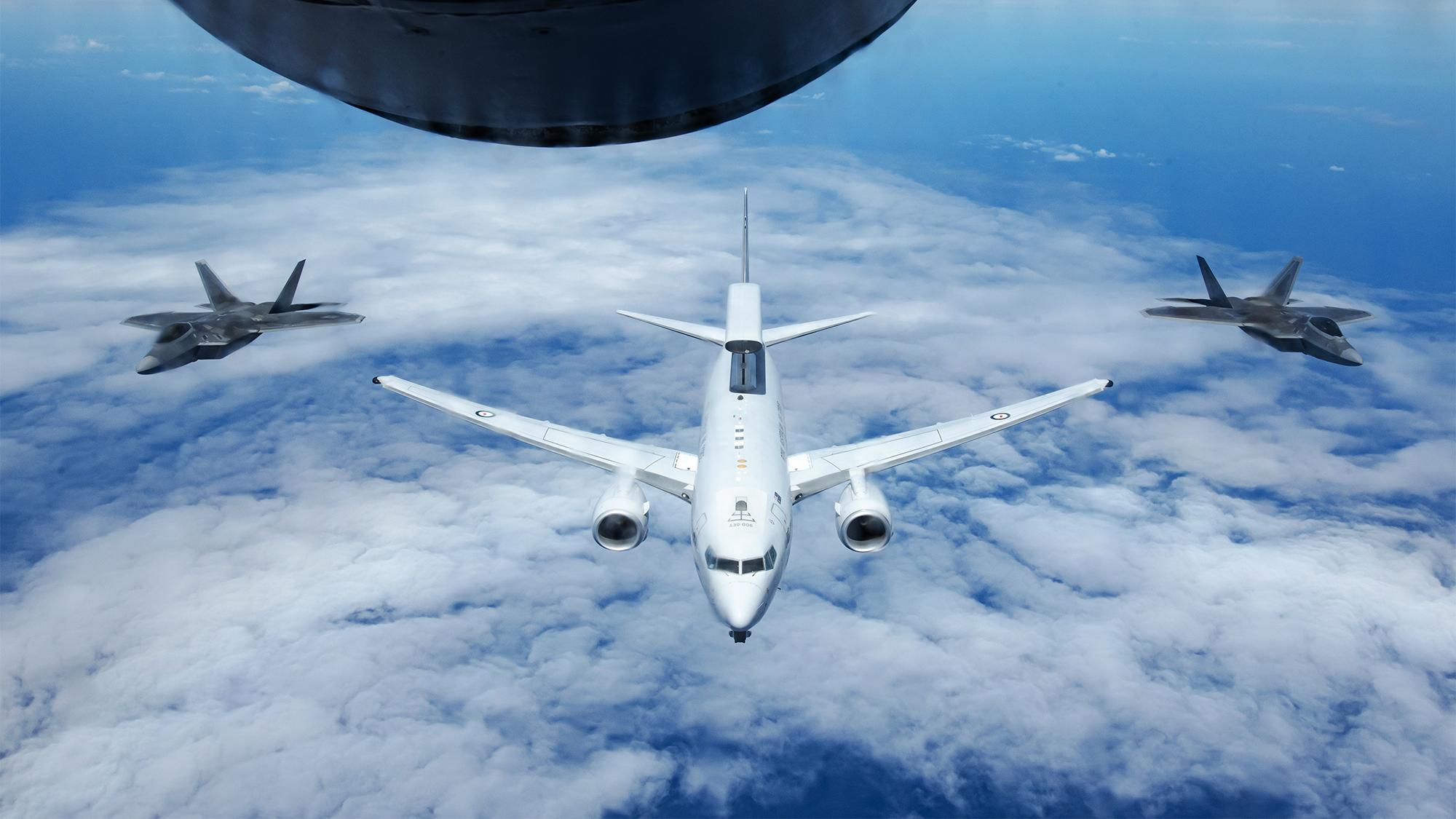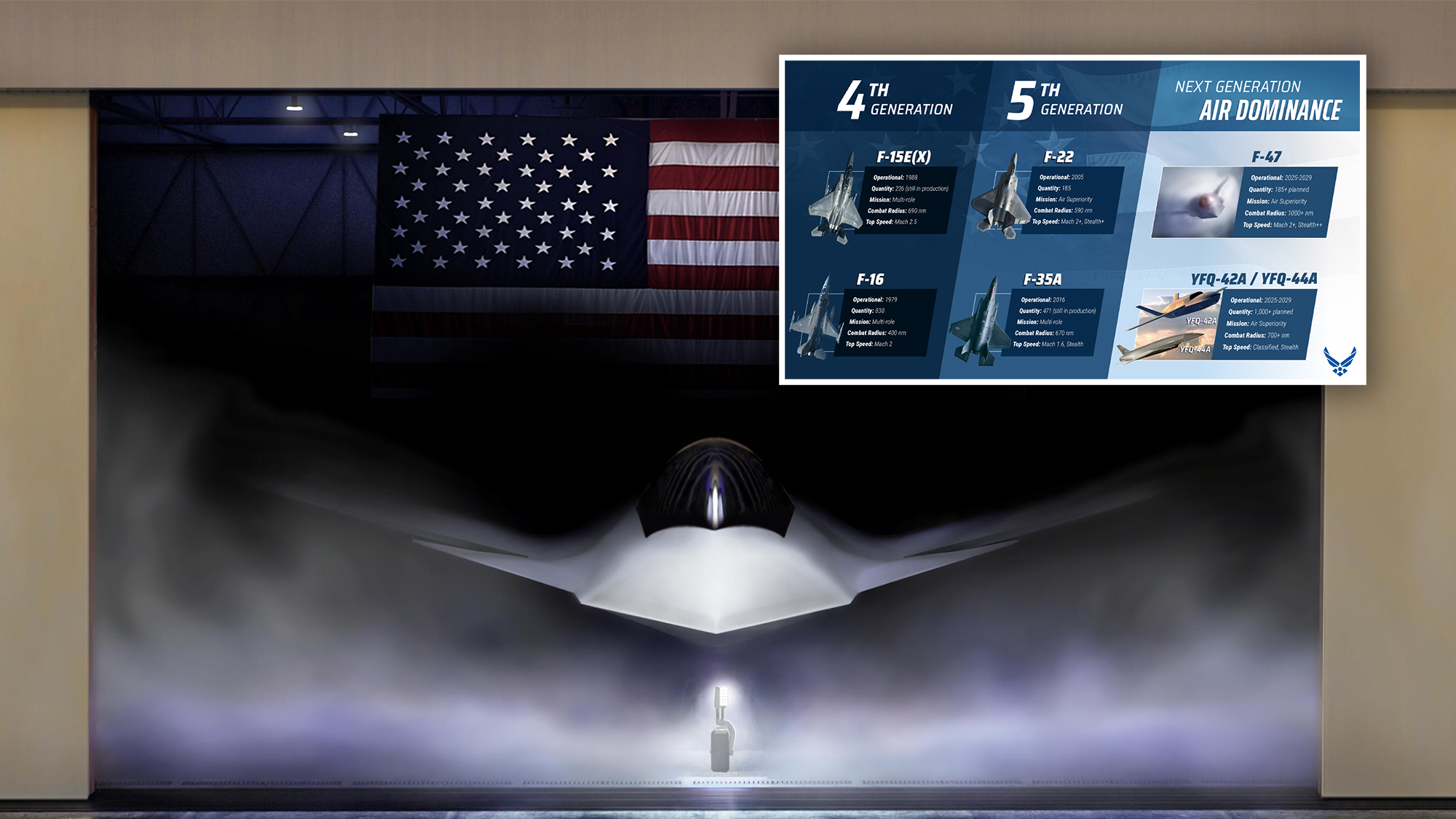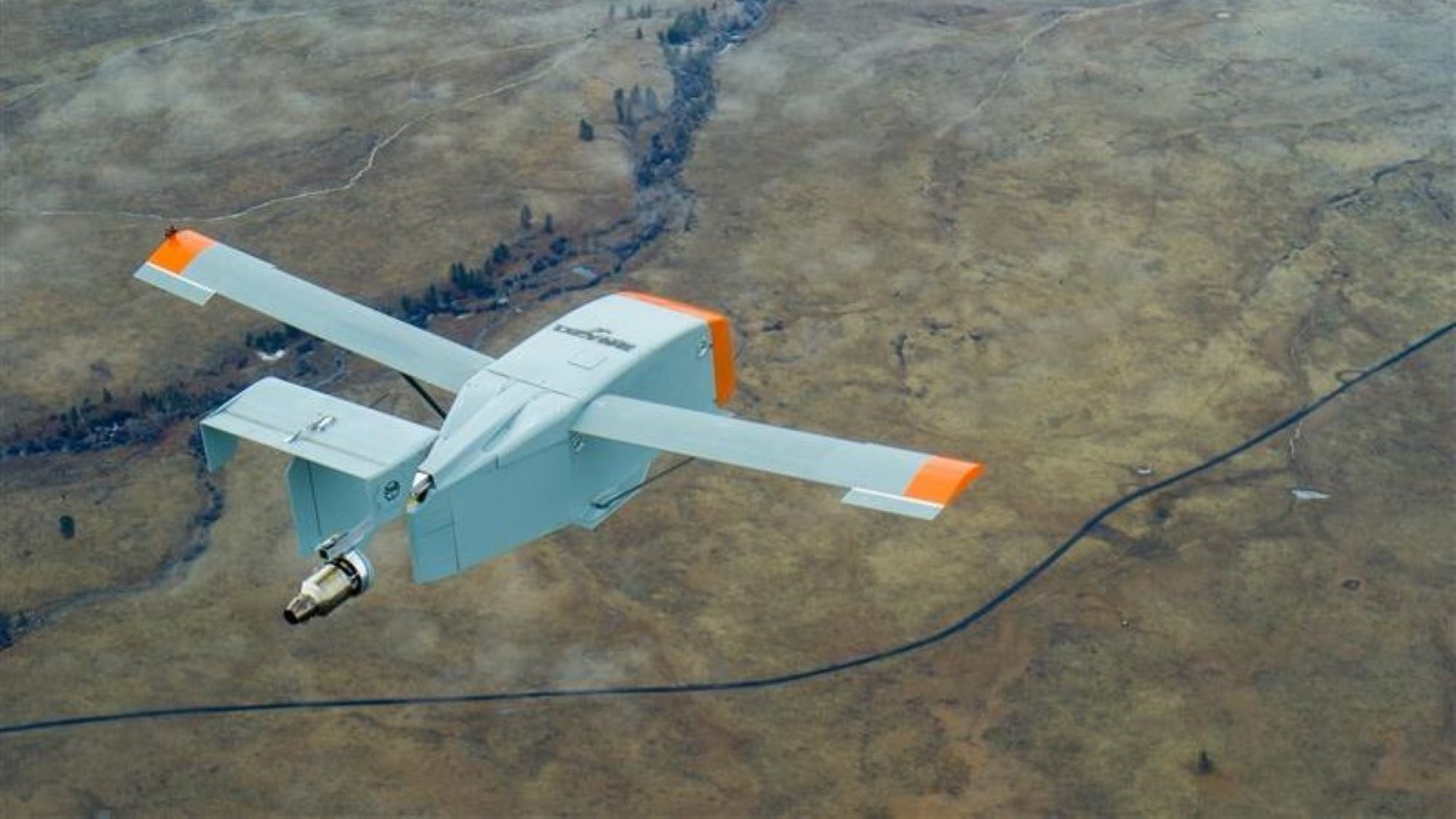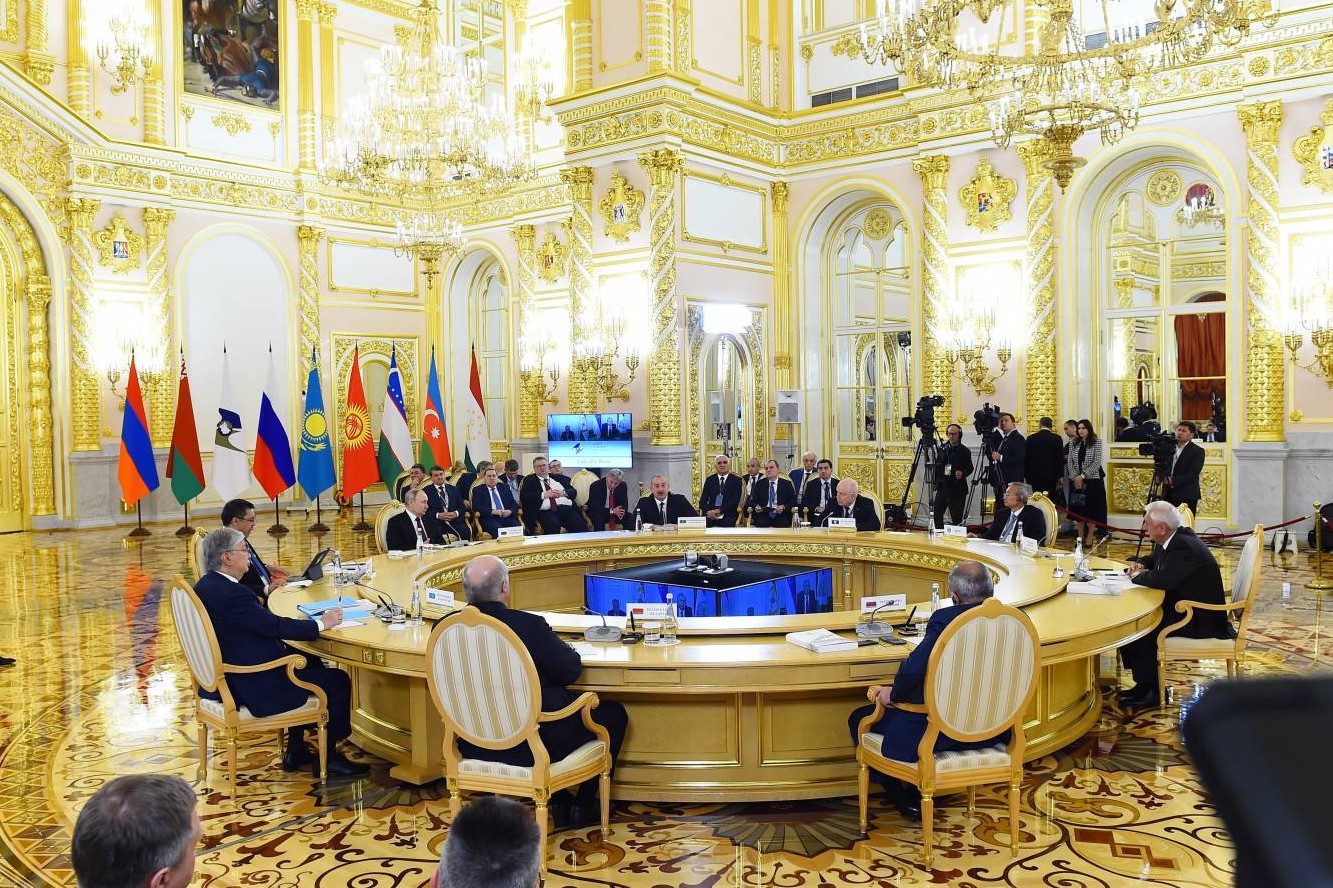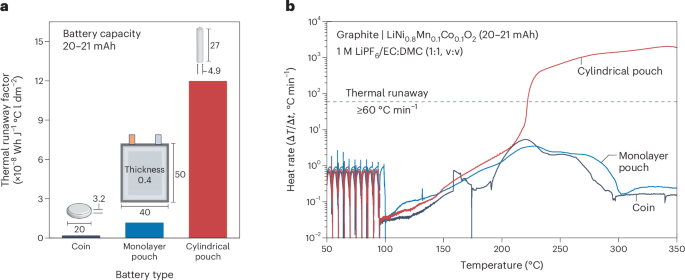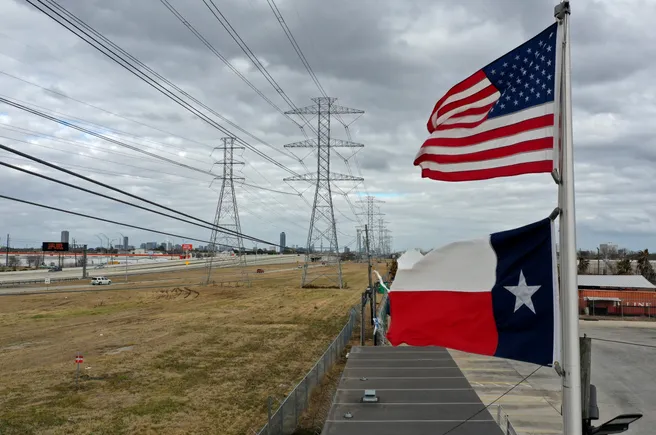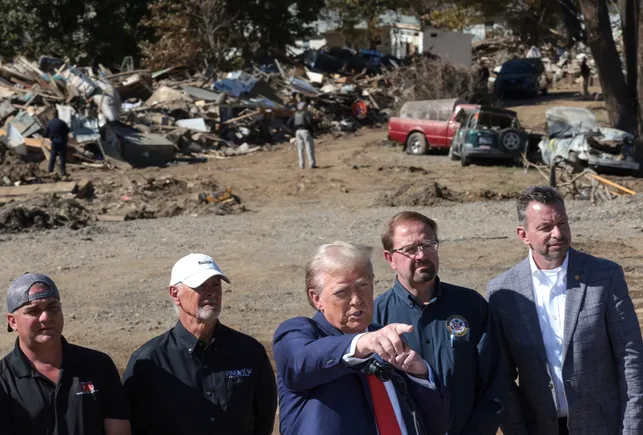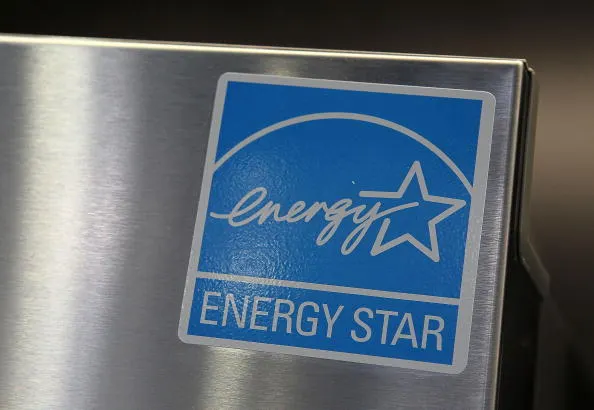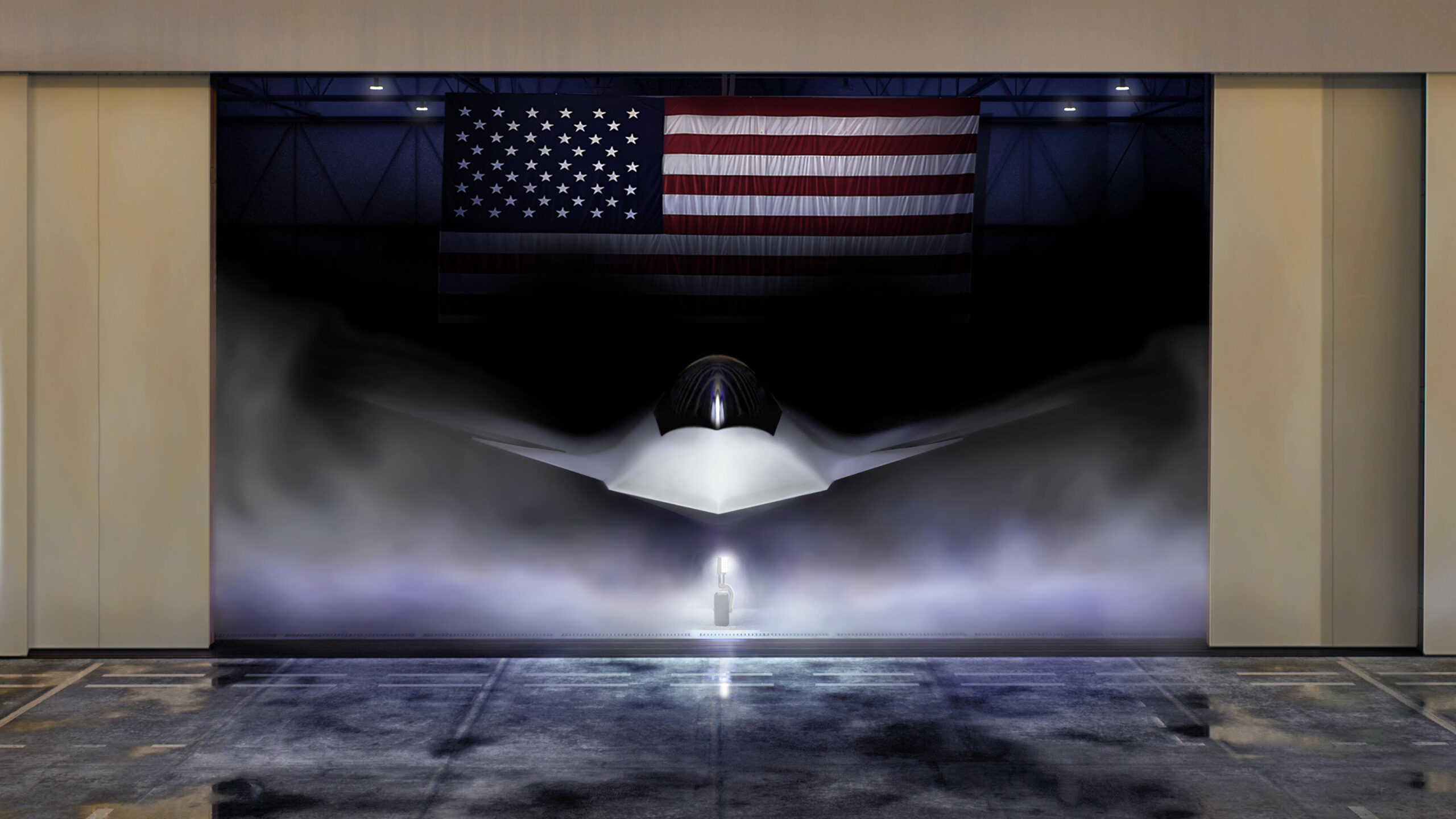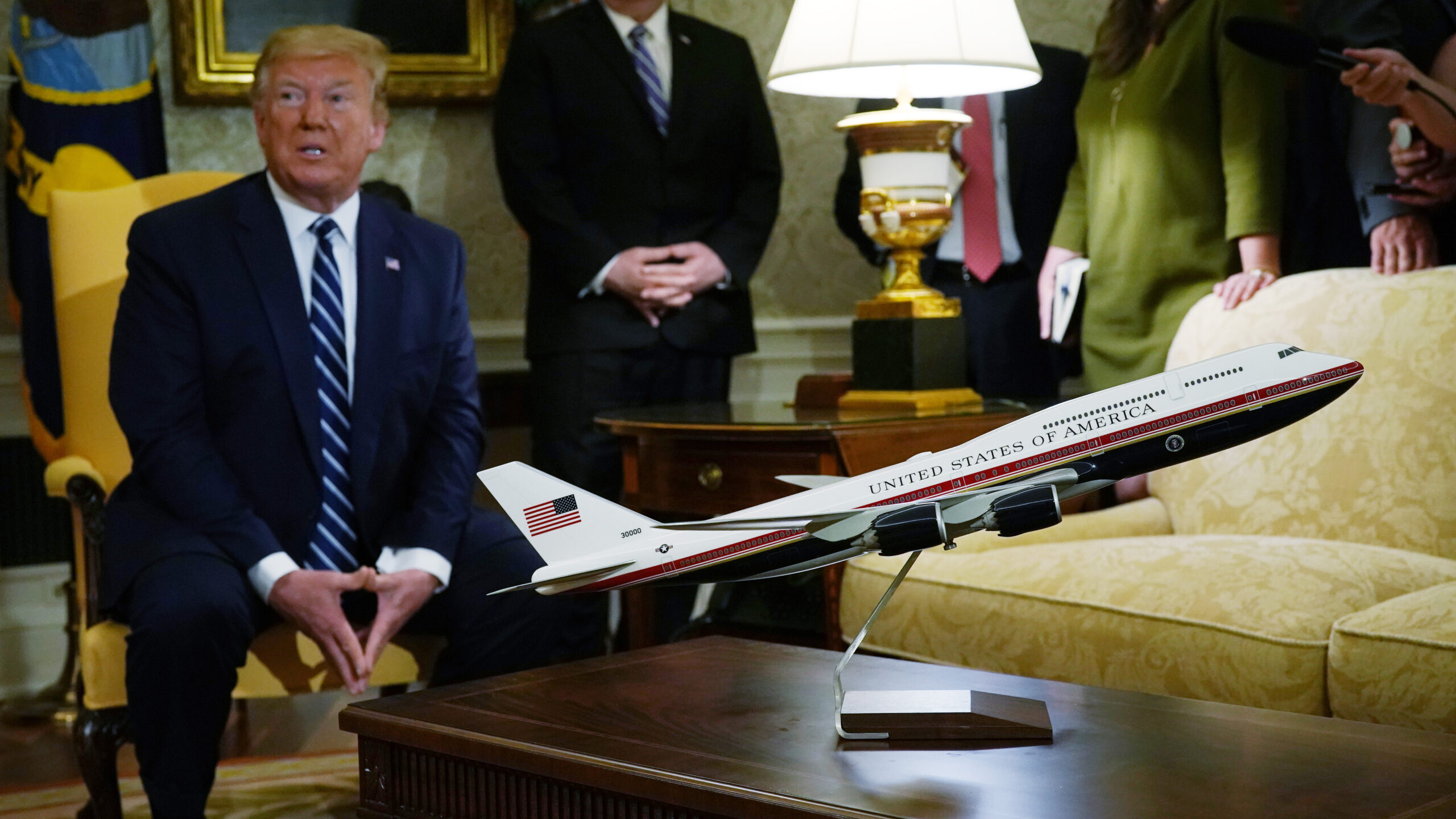Trump still has ‘hope’ for Saudi Arabia to normalize ties with Israel, but hurdles lie ahead: Experts
“I think that … rapprochement is in deep freeze and will remain in deep freeze until sometime after Gaza is resolved,” one analyst told Breaking Defense.


U.S. President Donald J. Trump and Saudi Crown Prince Mohammed bin Salman attend a signing ceremony at the Saudi Royal Court on May 13, 2025, in Riyadh, Saudi Arabia. (Photo by Win McNamee/Getty Images)
BEIRUT — During his first international visit to the Middle East, President Donald Trump renewed his push for the Kingdom of Saudi Arabia to normalize ties with Israel.
“It’s been an amazing thing, the Abraham Accords, and it’s my fervent hope, wish, and even my dream that Saudi Arabia, a place I have such respect for, especially over the last fairly short period of time, what you’ve been able to do, but will soon be joining the Abraham Accords,” Trump said during his speech before Saudi leaders at the Saudi-US Investment Forum on Tuesday.
At the end of his first term as president, Trump helped broker new relations between Israel and the United Arab Emirates, Bahrain, Sudan and Morocco under the Abraham Accords. But Saudi Arabia, keeper of two of Islam’s most holy cities, did not join. Now, it seems Trump is picking up where he left off, touring the Gulf nations and working to encourage the signing of normalization agreements.
But key obstacles blocked Trump’s first attempt at what would be a historic geopolitical shift, and experts told Breaking Defense that those haven’t gone anywhere, or only grown taller.
The most prominent: Israel’s ongoing war in Gaza and policy towards Palestinians.
“Even if they [the Saudis] wish to pursue this, current Israeli policies hinder such a decision,” Ali Bakir, a professor at Qatar University, told Breaking Defense. “There is little for them to gain and much to lose. Furthermore, Trump himself seems less interested in this issue compared to his first term.”
Bakir added that as long as Israeli Prime Minister Benjamin Netanyahu remains in power, and Israel continues its current policies, “we should not anticipate normalization.”
David Des Roches, associate professor at the Near East South Asia Center for Security Studies, agreed that progress won’t be made until the war in Gaza is over, specifically.
“I think that KSA-Israel rapprochement is in deep freeze and will remain in deep freeze until sometime after Gaza is resolved,” he told Breaking Defense.
One way to potentially short-circuit that problem, according to former Trump defense official Bilal Saab, would be for the president to dramatically distance himself from Netanyahu — a move successive American presidents have been loath to do.
“I’d ask the administration to pull the plug on the Netanyahu experiment,” said Saab, now senior managing director of TRENDS US. “It’s blocking the president’s big-ticket items in the Middle East, including Saudi-Israeli normalization. Trump can do it. Just show your support to Israel, and more importantly, protect the long-term US interest.”
Beyond Israeli policies, there’s the issue of a security guarantee for Saudi Arabia, which experts have previously said appears to be a precondition for Riyadh. Despite being described as “very close” to completion last year, the defense pact has not yet happened, and was notably absent from Trump’s various announcements about US-Saudi alignment this week.
“Regarding the defense pact, Trump may propose an enhanced defense agreement or something similar,” Bakir said. “However, unless it aligns with the Korean or NATO models, it will fall short of what the Saudis desire. Even if Trump is agreeable, Congress will have its own considerations, which will likely tie normalization with Israel to any defense agreement, effectively bringing us back to square one.”
Kristian Alexander, a senior fellow at the United Arab Emirate-based Rabdan Security and Defence Institute, pointed that while a formal, “NATO-style U.S.-Saudi defense pact remains elusive, the Trump administration is clearly reinvesting in defense and strategic cooperation with Saudi Arabia through alternative channels, massive arms sales, defense-industrial ties, and joint investments in AI and energy infrastructure. These moves serve to modernize the Saudi military and reinforce the alliance in practical terms, even if not codified through treaty.”
Whether that will result in any progress towards a normalization of ties with Israel is unclear, but Mohammed Baharoon, general director of B’huth, a Dubai-based public policy research center, said he thought it’s possible Saudi Arabia could take steps in that direction — based on actions in Europe.
“I expect Saudi (with other Arab Countries) to recognize Israel as a state based on its UN status and the relevant UN resolutions in return to major European countries recognizing Palestine as a state,” he said. “This is not a full normalization which possibly no diplomatic relations, trade deals or even direct flights. But it means that Israel as a state will be recognizes and their flags (or delegates) will appear in international events hosted by Saudi. It also opens the gate and give both Europe and US a win.”
And should Trump manage to fully draw Saudi Arabia into the Abraham Accords, Alexander said the kingdom’s participation would be “geopolitically transformative.”
“It could shift regional alignments and cement Riyadh’s status as a key diplomatic and economic power broker,” he said, stressing that the transformation comes from Saudi’s position as “the birthplace of Islam and the de facto leader of the Sunni Arab world.”
In the meantime, there’s the new question of Syrian involvement, as Trump invited President Ahmad Al Sharaa, until recently a rebel commander, to normalize Damascus’s ties with Jerusalem as well.

























